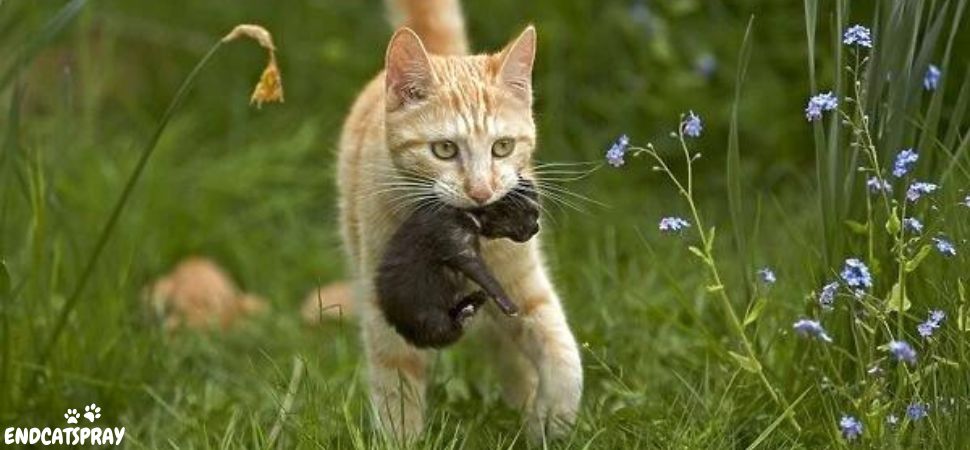Cats are the sweetest creatures to keep as pets. They are very friendly and cuddle with you spontaneously. However, in case of their babies, you might notice some strange behavior that they are moving their young babies to numerous places. At that time, a question might arise in anyone’s mind: Why is my cat moving her kittens under my bed?
A queen typically moves its babies to various areas during the beginning weeks of life. Remember that moving kittens is a normal behavior of cats. You will often see them hiding their babies, so there is no need to worry.
Because of my own experience, I understand that queens prefer to keep their babies secluded. Mom cats have solid maternal impulses and search for peaceful, separated spots to take care of their babies. There are many other reasons to do so. I will discuss them later on.
Key Takeaways
- A feline moves her babies under your bed to make them feel safe and secure.
- Felines have motherly instincts and instinctual behaviors in them.
- Feline might move their babies to different locations because of excessive noises.
- If there is difficulty finding water and food, you might see the queen switching to the current site.
- If you notice a feline moving one of her babies, it may be because of an unhealthy young baby.
- You can stop the cat from moving her babies by providing a calm environment.
Cat’s Behavior
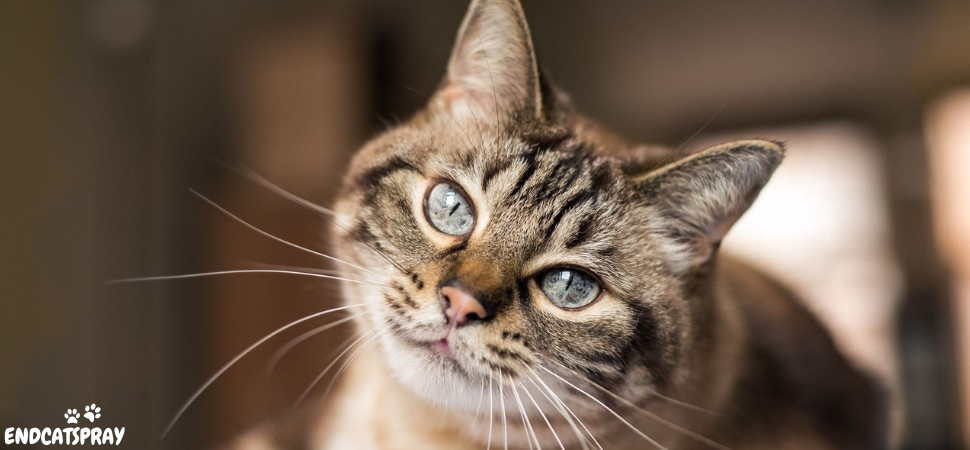
If you want to understand the behavior of the cat, particularly with regards to moving her babies under your bed, you should have knowledge of instinctual behaviors of female cats.
Motherly Instincts:
Undoubtedly, you cannot ignore the motherly instincts of the cats, as they are astounding. They love their babies so much and always watch them closely. Despite taking care, she also assists her babies in developing social abilities by making them learn how to chase as well as play with them.
The result of teaching these things assists the babies in learning all the fundamental abilities they need as grown-ups. If they perceive any risk, the queens begin to make sudden sounds, such as hissing and murmuring, to save themselves from possible dangers. It is incredibly critical to notice how strong these instincts can be.
These instincts assist the babies in their emotional, social, and mental development. In most cases, queen gives proper attention to orphaned babies and those from different litters.
If you own a pet, you must allow nursing felines to be calm and peaceful with their babies. If you do this, it can help you in developing a better connection with your feline companions and staying away from any rivalry that could emerge from interference.
Instinctual Behaviors:
Felines already know too many learned and innate behavior methods to maintain their everyday routine. They are known as natural behaviors. The most common natural behaviors are jumping, hunting, scratching, grooming, and kneading. These behaviors are directed by their predatory nature as well as survival behaviors.
Felines might look like calm animals but can be adequately defensive regarding their babies. Researchers have claimed that felines can act diversely, relying on their current surroundings.
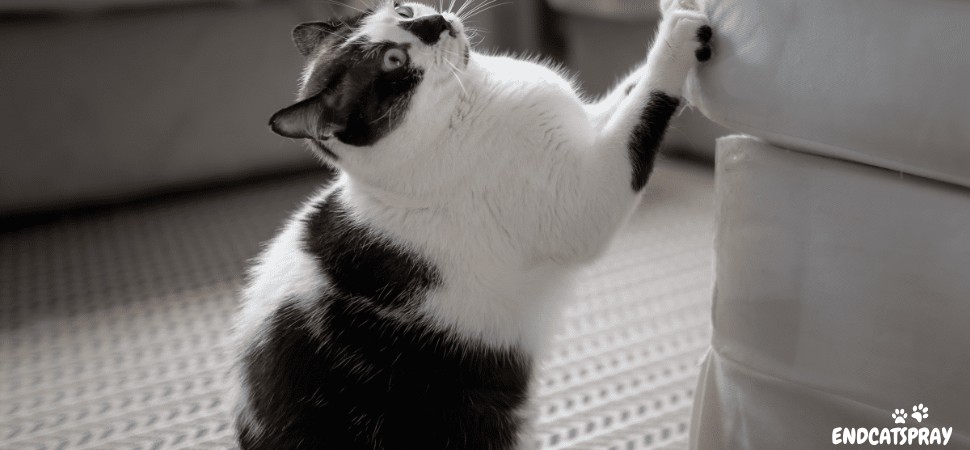
One of the most essential behaviors among them is scratching. It is significant for felines as it assists them with sharpening their nails for hunting, disposing of the dead external layers of their claws, and stretching their muscles. Often, cats scratch where their friends have pointed with pheromones or on vertical surfaces. They probably cross after taking a rest or instantly after walking up.
However, there are several instinctual behaviors that some breeds of felines have while others do not. For instance, Siamese cat are popular for their vocalization, allowing them to connect with people through chirps, throaty calls, and delicate meows. It additionally exhibits their fun-loving nature.
Why is my cat moving her 1-week-old kittens?
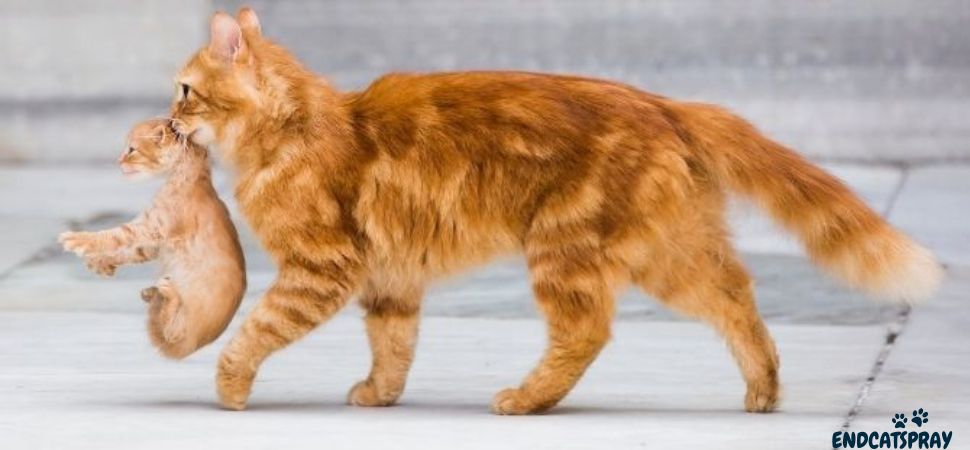
Realizing that your feline will have many charming babies can be good news for you. However, once she gives birth to them, you must give your proper attention as an owner to avoid potential risks.
All felines are excellent moms, and they love their babies a lot. Infant cats are not able to hear or do anything. In this way, they are powerless and rely just upon their mothers to secure and support them. Therefore, the queen’s instinct helps keep their children completely safe.
Few of the mom felines can begin moving their babies from the nesting spot, which can occur because of multiple factors. Indeed, it is widespread among them to do this.
Moreover, the felines also want to move their babies where they feel comfortable and safe. However, there are a couple of strategies that you can utilize to prevent a queen from moving babies.
Reasons of why is my cat moving her Kittens under my Bed:
Felines cherish and trust us. Above all, they think of us as a component of their life. View it like this and consider yourself an individual from a community who assists one another. You will understand why your feline would move her babies under your bed.
Some of the primary reasons why your cat is moving her kittens under your bed are as follows:
She Feels Secure
To protect their babies, felines, particularly mother, have developed strong motherly instincts. Felines are famous for being mysterious; thus, when they have to move their babies, they search for a spot where they seek reassurance and security. They prefer a peaceful, quiet, safe place and when they find any, it becomes the preferred spot for her to keep her new babies.
In addition, she would search secret places to guard their babies from expected hunters. For this purpose, the feline might see under the bed as a defensive place where she can save her babies from expected dangers. However, if she has picked under the bed as the settling place, ensure not to interfere with her.
Lack of Experiences:
Generally, felines are very friendly and caring with their babies. But if she becomes a mother for the first time the circumstances can be new for her. There are chances that the queen will develop eclampsia. If this will be the case, there is a greater risk that she can harm her babies unintentionally.
There are chances that a mom cat might become insecure because of lack of experience. She keeps on switching places. Also, due to this insecurity, she might start to move her babies under the bed. However, if she has experience, you might not see them doing this.
She Feels Cozy:
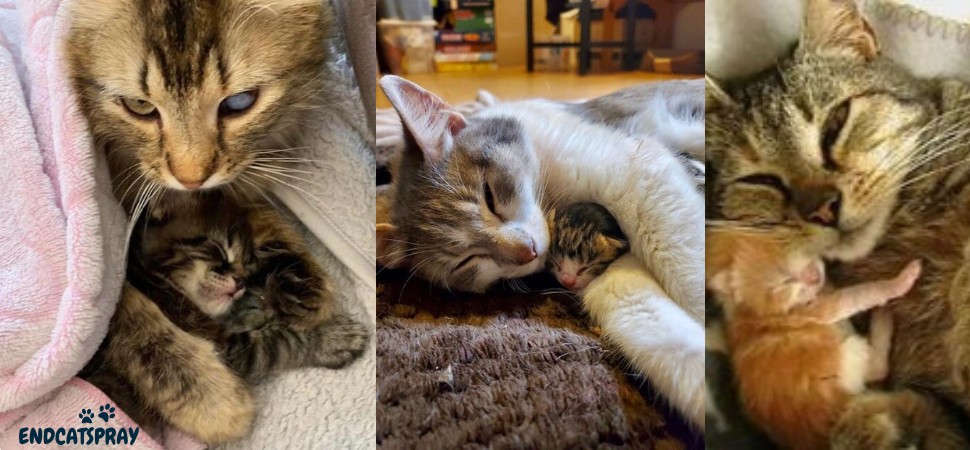
Remember that your feline’s choice for a comfortable and cozy climate creates a favorable environment for her to take care of her babies. She intuitively searches for a warm, encased place for their babies to stay.
She moved to that place because they find it a cozy and protective place where their babies sense safety and privacy. The environment makes it an optimal place for her little ones.
She is Trying to Get Your Attention:
Another reason feline move their babies is because they want your attention. Your feline might be moving the babies to indicate that she wants affection and love.
Also, felines will try moving the babies and expect you to give them treats, love, and cuddles. At the point when she needs your attention, she will figure out how to attract you.
Keep yourself away from pointless interruptions, and ensure she has everything she requires, like a litter box, food, and water, close by. Sometimes, when the needs of queens are not adequately fulfilled, they start to do strange things. Also, it is more about establishing a helpful climate for her motherly impulses and providing her with all the attention that she needs.
Weather Condition:
The weather is another reason why a feline decides to move her babies. If there is a draft in different parts of your home, or the weather conditions are adverse, they will look for cozy and more safeguarded climate for the babies.
Make sure there is no cold air coming or drafts from windows or entryways in the picked area.
As well as cold weather, hot weather is also be the possible reason she movies her baby to a cool and windy quite place.
Excessive Noise:
One significant stress, especially for mom felines, is the excessive noise. Felines have a sharp feeling of hearing, and noisy or persistent sounds can upset and scare them. Felines are very delicate creatures, and unnecessary sounds can result in anxiety and uneasiness.
A focused queen might want to move her babies to a calmer, more confined place to shield them from what she sees as possible dangers. For this reason, try to decrease excessive noise in the area where the feline and her babies are found.
Teaching Survival Skills:
Teach the babies all crucial survival skills, which might be why your feline moves her babies. As the babies continue to mature and turn out to be more versatile, the queen might move them to an area that gives new encounters or difficulties. It assists the babies with learning significant survival abilities to survive, such as hunting and exploring their current surroundings.
No matter whether it is moving them to a more secure area, maintaining their habitat clean, or developing their significant abilities to survive, mom cats play a crucial part in the establishment and prosperity of their little felines.
Does your cat keep moving her kittens?
Once I visited my friend’s home and find her quite emotional because she was in search of her cat and their new born kittens, I told her not to be worried because that it is a very common practice in cats to keep moving her kittens. When she senses any kind of insecurity or threat, she feels inclined to do so.
Indeed, even pet felines can desire to move their babies to where they sense more comfort and security. Besides, it is a method for her to teach them the proper way to survive alone. As we have already discussed, newborns are not able to hear or see anything; that’s why they are defenseless and rely just upon the queen to shield them.
A queen will put effort and time into searching for a spot before giving birth. But, later on, the feline’s choice might alter. Thus, the babies will be moved if she thinks the site has been compromised.
No doubt, most mother felines are very playful when it comes to humans or even their babies.
But sometimes, they start to move their babies to several locations. Let’s discuss why do mom cats move their kittens?
She smells another cat close to the nest
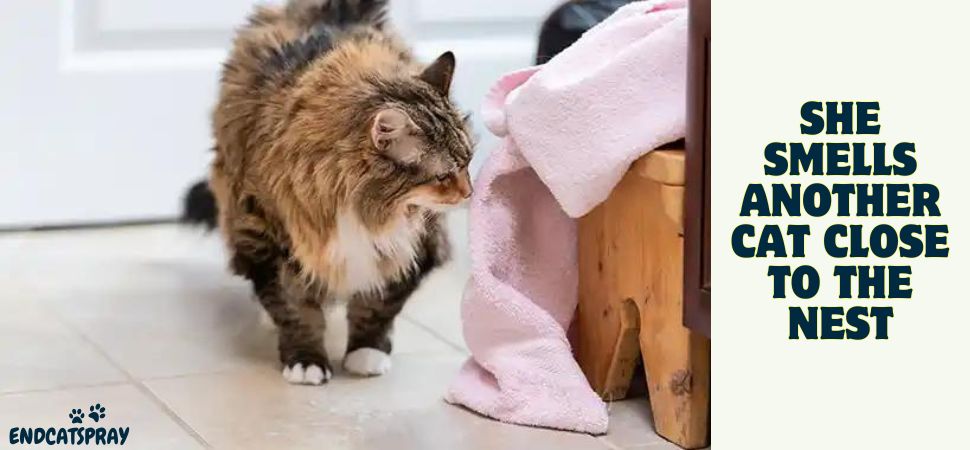
A queen might move her babies in case she smells the fragrance of another feline near the nest. Sometimes, she smells that a tom or any other bigger than her have come to her current place. Another feline’s smell could activate the defensive impulses of a queen. She might perceive the unfamiliar smell as a possible danger to her babies’ wellbeing.
Also, keeping her babies away from potential hunters is vital for their survival. Felines are regional creatures; a queen can be highly defensive of her nesting region. At times, she could be worried about the interference of another feline with her babies.
If she detects the smell of another feline, she could move her babies to an alternate area to keep them away from struggles or difficulties in her nest.
Water & food have become more challenging to find:
Another reason cats might move her babies is that food and water are not readily available. Felines, particularly in a wild or open climate, have major instincts to get resources for their babies. In case the queen detects that the resources for food and water are decreasing in the present location, she might move her little ones to a place with better access to these fundamental resources.
In addition, moving her little ones to another area could be a step-by-step process for survival. Felines, being clever creatures, adjust to changing natural circumstances by migrating to regions with additional resources of food and water, guaranteeing the wellbeing and development of their babies.
Why is my cat moving one of her kittens?
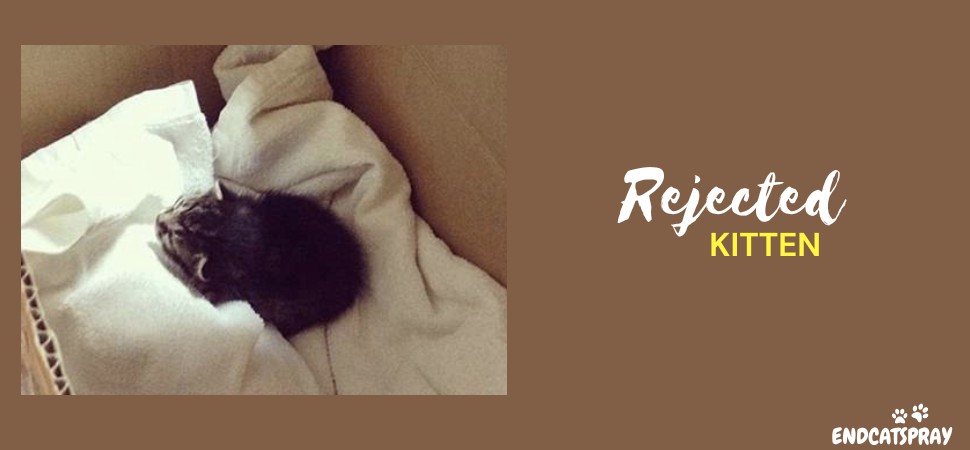
If your feline is moving one of her babies, it may be because of an unhealthy one. She have a sharp sense of smell and can identify changes in the health of their babies. In case any one of her offspring looks unhealthy, whether because of a disease or other factors, the mother might intuitively attempt to move it away from other babies to protect others. This is one of the reasons she reject her kittens.
Keeping the weak kitten will attract predators and ultimately put the entire litter’s life at risk. Though it is a difficult choice for the mother, but by separating the unhealthy kitten, she is protecting rest of the litter.
How to stop cats from moving kittens?
As we discussed above, this is the cat’s behavior to move kittens but you can try to stop kittens by giving her a place which she likes the most. Still, there are a few things you can do. Some of the common ones include:
Create a welcoming area for the kittens:
Making a special place for the felines can assist with stopping a queen from moving them to various areas. Giving a cozy and warm spot is a primary method for supporting her motherly instincts.
Consider setting a blanket or anything cozy to cover their nesting region and to guarantee they stay comfortable. It can provide her a feeling of safety and enclosure, causing her less inclined to feel the desire to move her babies to an alternate area.
Also, put water and food boxes closed so the queen has simple admittance to nourishment without leaving her babies for a long period.
Provide a safe & secure environment:
Establishing a safe climate for a queen and her babies is vital to stop her from moving them to various areas. For this, you need to create a safe and comfortable home for the babies.
In case you have more pets, direct their cooperation with the mother and her babies. Guarantee that the mom feels secure that her home is protected for her little ones.
Cuddling babies as little as you can:
No doubt, it becomes very exciting for you to cuddle the newly born babies of your feline. However, it is highly recommended to touch them as little as possible to stop the queen from moving. The mom can take proper care of her babies and it could be very annoying for her that you are cuddling newly born too frequently, leaving her feel threatened.
Furthermore, do not allow strangers to come near them until they become at least eight weeks old.
Keep the environment calm & quiet
If you are worried about why is my cat moving her newborn kittens, choose a calm and quiet spot in your house where the queen can feel peaceful. Stay away from places with excessive sounds, high pedestrian activity, or continuous interruptions. Furthermore, try to decrease outside sounds that might upset the feline and her babies. Shut windows or entryways to limit road sounds, and think about utilizing delicate curtains to reduce noises.
Tip: Pick up a carton and make it a house of cat, cut the box from center in round shape for ventilation and put a blanket in it for them.
Wrapping Up
If you are considering the question: Why is my cat moving her kittens under my bed? This entire article must be quite helpful for you. I have explained all the possibilities with reasons. The queen always desires a safe and secure place for her little ones as a top priority where she can keep them safe from potential threats.
A mother feline has very strong motherly instincts to detect any kind of danger. In case she faces difficulty in getting food or water at the current place, she moves her babies to a place with rich resources. Also, the smell of a tom cat or any other feline bigger than her, causes her to move her babies to a safe place. However, keep in mind that it is completely normal for them to move their babies to different places and they do this quite often. To stop moving her, always choose a calm and peaceful place for her with rich resources.
References
- https://medium.com/@jadencraymer/why-my-cat-keeps-putting-her-newly-born-kittens-in-my-bed-ddbb91a9113
- https://www.catster.com/guides/stop-a-cat-from-moving-kittens/#:~:text=Mother%20cats%20move%20their%20kittens%20for%20a%20variety%20of%20reasons,removes%20them%20from%20the%20litter.
- https://blog.catbandit.com/understanding-why-cats-move-their-kittens-3/
